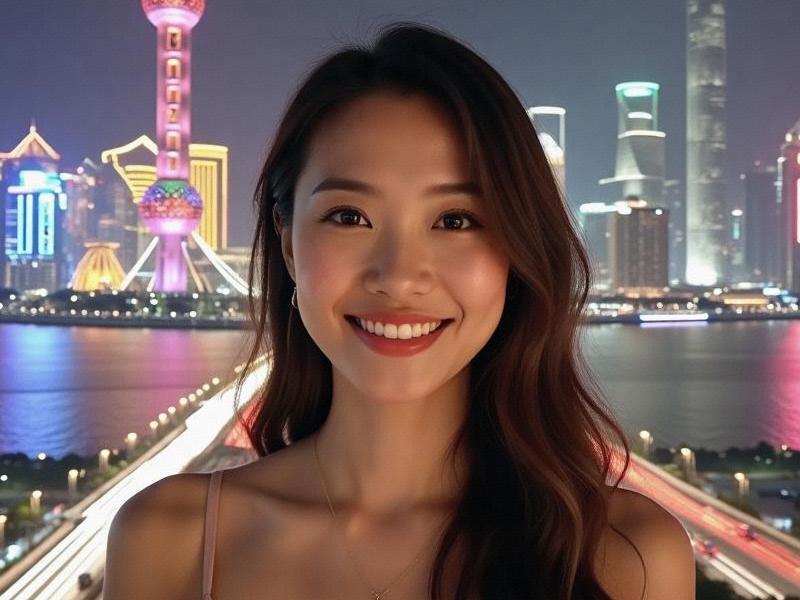
The cobblestone streets of the French Concession whisper stories of silk and modernity as Shanghai's fashion-forward women stride past historic shikumen buildings. These style icons - whether corporate executives sipping matcha lattes in Jing'an or art students sketching along Suzhou Creek - embody what locals call "haipai" (海派) culture: that distinct Shanghainese blend of Eastern refinement and Western openness.
Walking through Xintiandi's designer boutiques on a crisp May morning, one immediately notices the Shanghai woman's signature styling techniques: a qipao-inspired dress paired with Italian leather loafers, or a tailored blazer worn over flowing wide-leg trousers that nod to 1930s Shanghai glamour. "We don't follow trends, we recrteeathem," says Vivian Tao, 28, a fashion blogger with 2.3 million Weibo followers who documents street styles along Anfu Road.
What makes Shanghai's beauty standards unique? Local stylists identify three pillars:
夜上海最新论坛 1. The "Jade Skin" Ideal: A porcelain complexion achieved through sophisticated 10-step skincare routines combining TCM herbs and French pharmacy products. The city's dermatology clinics report 37% annual growth in non-invasive treatments.
2. Hybrid Silhouettes: Outfits that masterfully balance proportions - perhaps a cropped cheongsam top with high-waisted trousers, or a deconstructed Tangzhuang jacket over a slip dress. The Shanghai Fashion Week runway increasingly showcases these fusion designs.
上海龙凤419足疗按摩 3. Intelligent Accessorizing: From vintage enamel brooches found at Dongtai Road antiques market to limited-edition Mini Kelly bags, accessories tell stories. The average Shanghai working woman owns 14 handbags according to 2024 market research.
The economic power behind this style movement is staggering. Shanghai's luxury market grew 18% year-on-year in 2024, with women aged 25-40 accounting for 62% of purchases. Local brands like Uma Wang and Ms Min now stock in Bergdorf Goodman, their success fueled by hometown supporters.
上海夜网论坛 Yet beyond commercial success lies cultural significance. As Dr. Li Wen from Fudan University's Sociology Department observes: "Shanghai women have turned personal styling into soft power. Their fashion choices reflect China's evolving position in global culture - respectful of tradition but confidently modern."
From the art deco curves of the Bund to the neon-lit towers of Lujiazui, Shanghai's women continue rewriting the rules of urban elegance. Their secret? As boutique owner Zhang Lei summarizes while adjusting a customer's jade bangle: "True Shanghai style isn't about what you wear - it's about how you carry centuries of culture on your shoulders."
